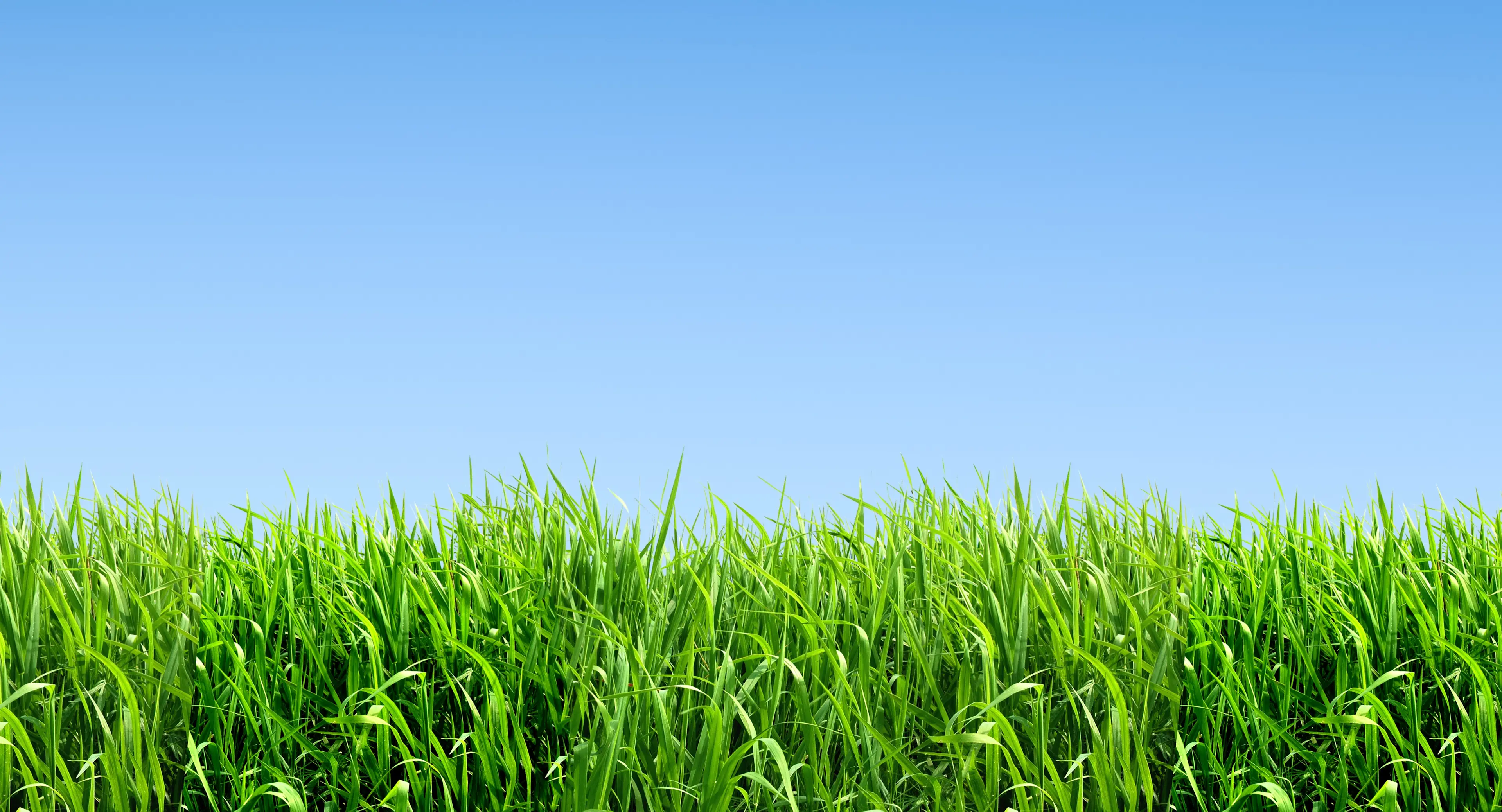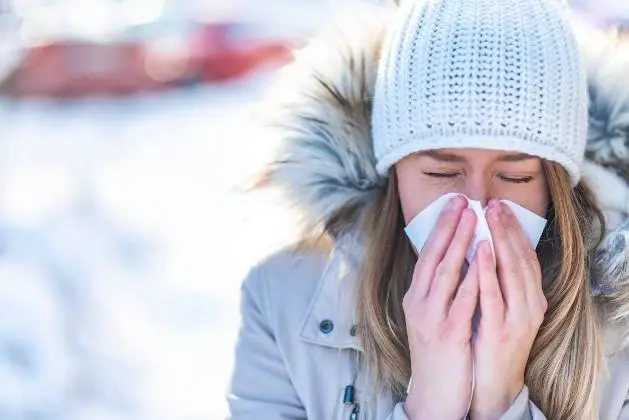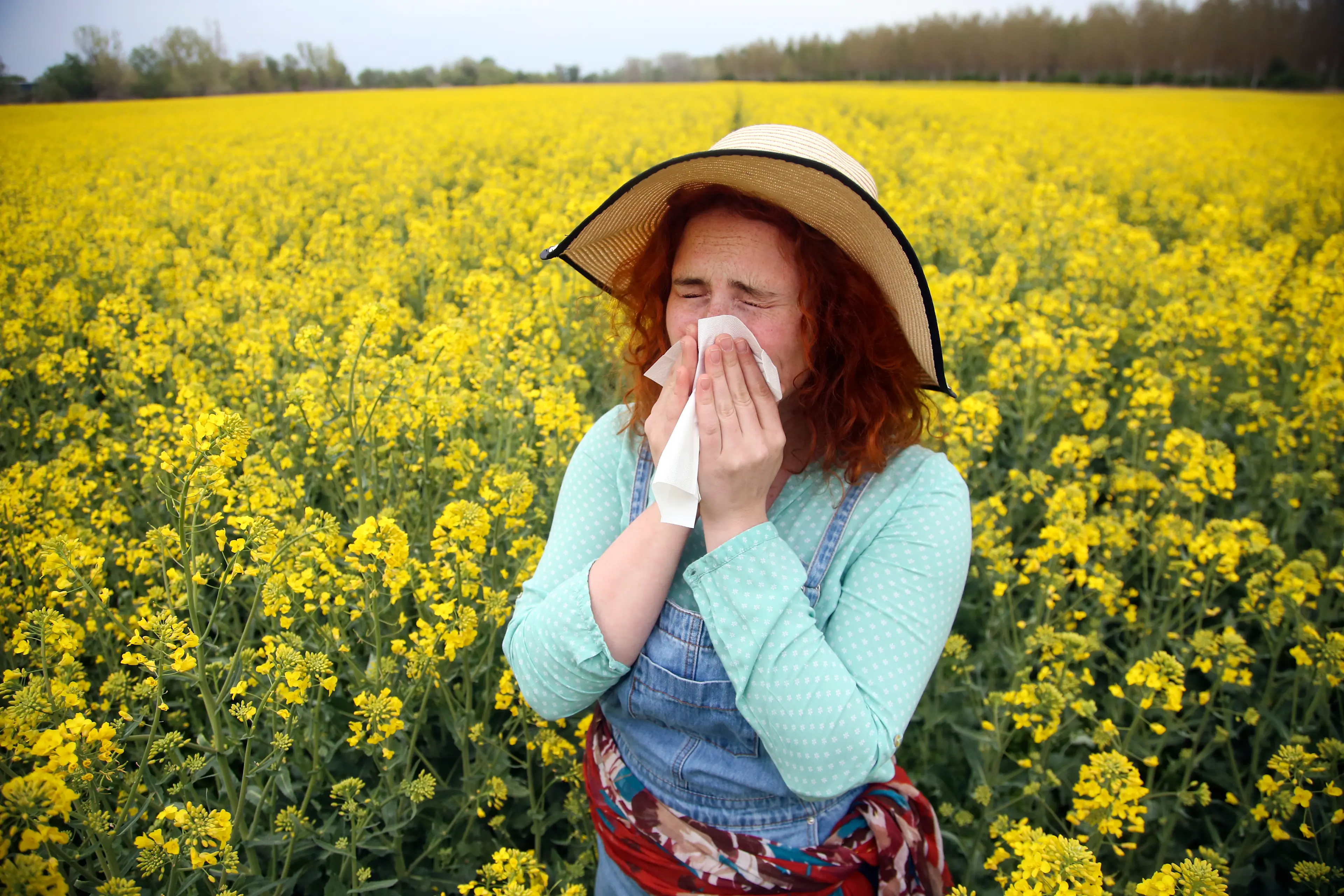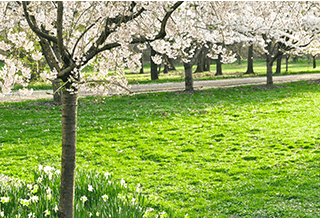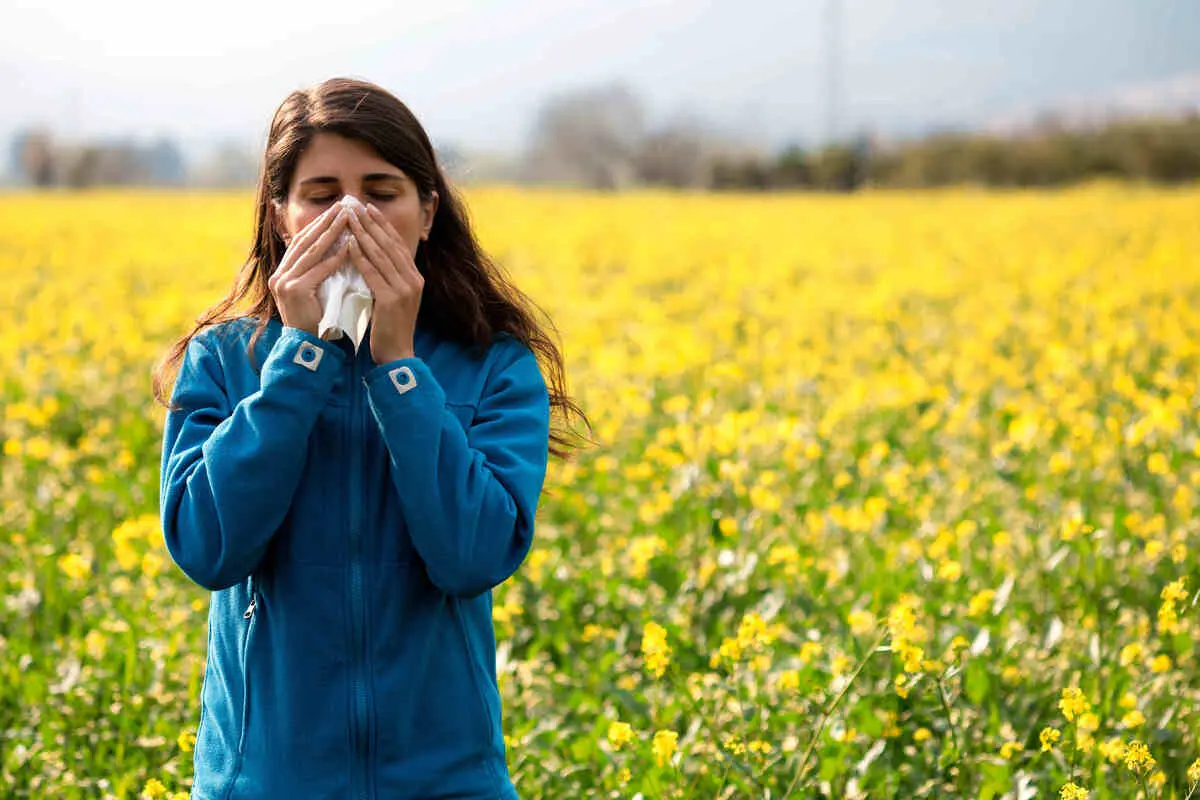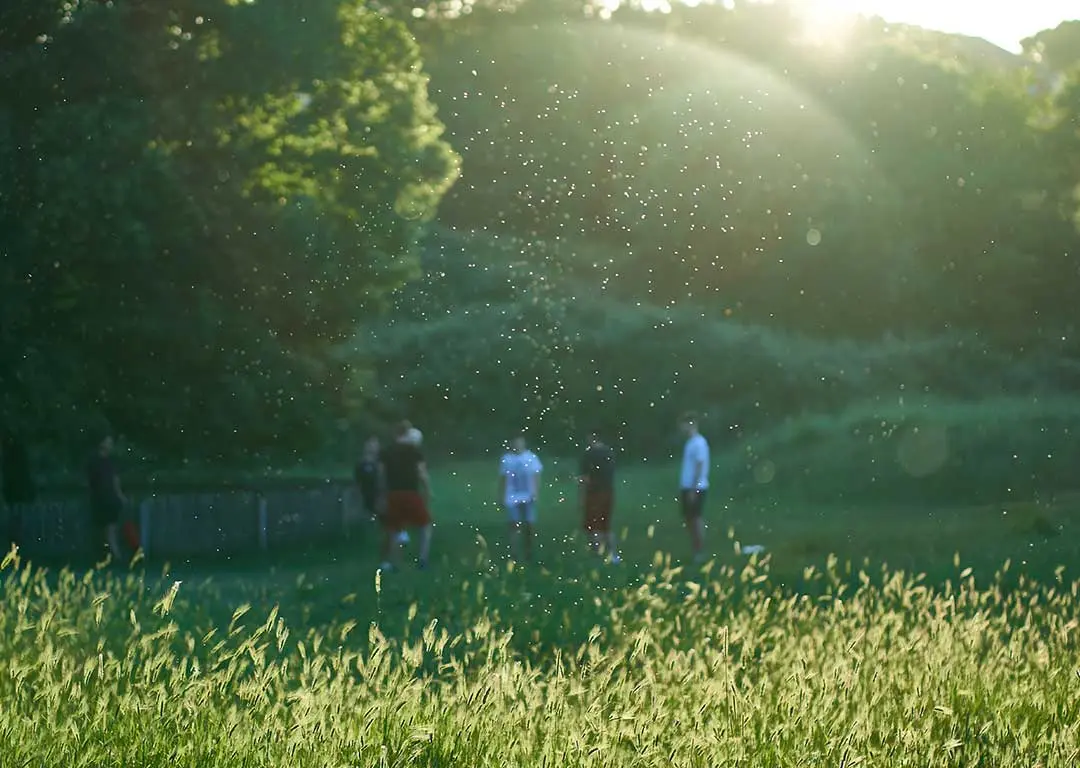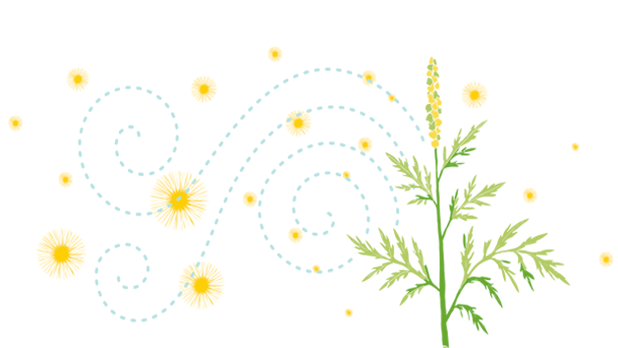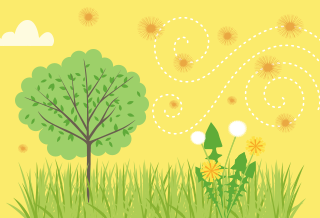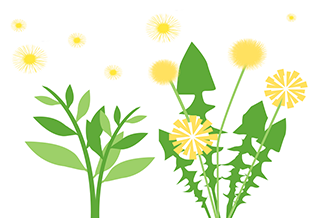1. What it is
Grass produces pollen that affects outdoor allergies. It’s also easily brought indoors by wind, people and pets.
2. When it is in season
This allergy trigger is both seasonal and regional, affecting millions of people in late spring and early summer.
3. What to watch out for
There are well over 1,000 types of grass in the world; however only a few produce allergens. Unfortunately, three of the most common grasses grown in Canada – blue, rye and Bermuda grass – all produce allergy-causing pollen.1
4. What to do
Keep the grass in your yard short.
Wear a mask to mow the lawn, or ask someone without allergies to help.
Think about replacing your grass lawn with low pollen ground cover — Irish Moss, Bunch and Dichondra — or pollen-free features like rocks, sand and water.
